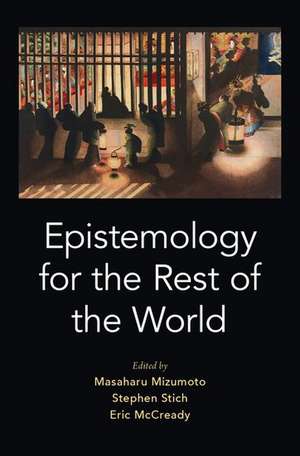Epistemology for the Rest of the World
Editat de Stephen Stich, Masaharu Mizumoto, Elin McCreadyen Limba Engleză Hardback – 19 iul 2018
Preț: 512.78 lei
Preț vechi: 681.72 lei
-25% Nou
Puncte Express: 769
Preț estimativ în valută:
98.12€ • 102.72$ • 81.19£
98.12€ • 102.72$ • 81.19£
Carte tipărită la comandă
Livrare economică 27 martie-02 aprilie
Preluare comenzi: 021 569.72.76
Specificații
ISBN-13: 9780190865085
ISBN-10: 0190865083
Pagini: 320
Dimensiuni: 239 x 160 x 23 mm
Greutate: 0.64 kg
Editura: Oxford University Press
Colecția OUP USA
Locul publicării:New York, United States
ISBN-10: 0190865083
Pagini: 320
Dimensiuni: 239 x 160 x 23 mm
Greutate: 0.64 kg
Editura: Oxford University Press
Colecția OUP USA
Locul publicării:New York, United States
Recenzii
This book discloses a hidden assumption for practicing contemporary epistemologists, the universality thesis...No matter what it is, every epistemologist ought to contemplate the thesis and be ready to deal with the consequences. This book leads us to the first step.
The volume represents a significant advancement to the epistemological discussions involving the universality thesis.Because it challenges traditional universalist epistemological approaches and offers a diversity of scholarship, this volume will be an invaluable resource for those studying epistemology...Summing Up: Essential.
The volume represents a significant advancement to the epistemological discussions involving the universality thesis.Because it challenges traditional universalist epistemological approaches and offers a diversity of scholarship, this volume will be an invaluable resource for those studying epistemology...Summing Up: Essential.
